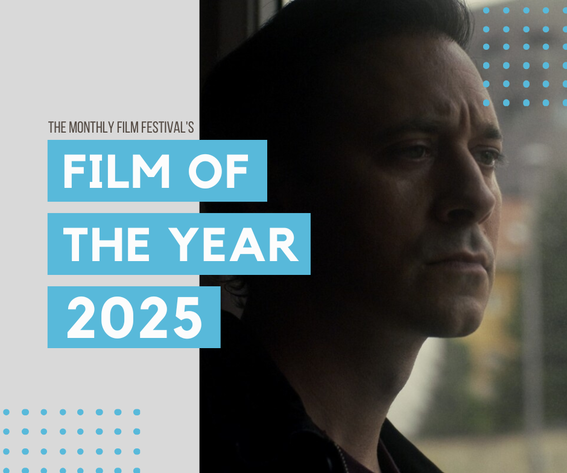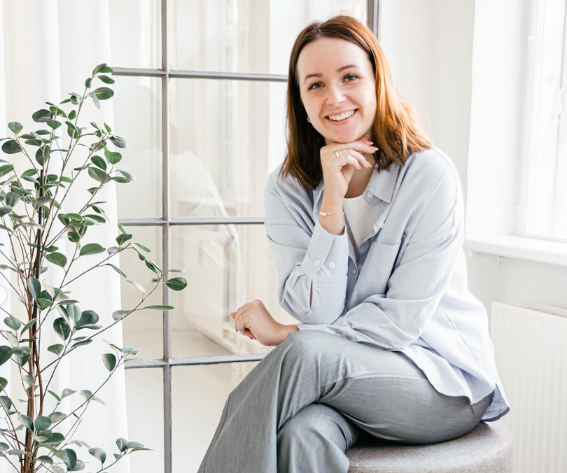Each year, there are 12 ‘Films of the Month’ awards. And every year, we get to sit down and select the very best one out of the best ones. It’s truly a difficult task, as one can make a case for pretty much all of the twelve. However, after much deliberation, we chose our winner, the Best Film of 2022, and that is Beau Monde. And while we didn’t travel to nearby Belgium, we had another online chat with director Hans Vannetelbosch, whom we had already met roughly one year ago.
JL: Hans, ‘Film of the Year’! How does that sound?
HV: Unreal! Such an incredible honor! A very pleasant surprise that I wasn’t expecting at all. It’s been a year since we won Film of the Month in January 2022, and I’ve also been busy with a new project, so it hadn’t really been on my mind anymore. I think many filmmakers will agree that when you’re working on something new, you’re often full of doubts, so I can’t be more grateful about receiving this news about winning Film of the Year. Thank you very much, and cheers to all the cast and crew for this amazing achievement.
JL: Since we last spoke one year ago, what else has happened with Beau Monde and its reception?
HV: We had a really nice run at the festivals, mostly in Europe. The film went to festivals in France, The Netherlands, Croatia, Slovenia, and most recently to Italy, where we won Best Director and The Critics’ Choice at the Montecatini International Short Film Festival. I wasn’t able to travel to all the festivals, but my time in Italy and also in The Netherlands at the Zuidelijk Film Festival was really great. The film was well-received, I met some new friends, and made new meaningful connections, which in the end is really what the festivals are all about, to me at least.
JL: Last time around, you mentioned that part of the inspiration behind the film came from the time you worked as a salesman for kitchens, and encountering rude, ‘know-it-all’ types of characters along the way. How does it feel to achieve success with a film that points the finger at exactly that?
HV: It’s great to see how the subject seems to resonate with audiences everywhere. What I found mostly interesting is that since our film was released, there has been a slew of other films and series that tackle the same issues, like for instance, The White Lotus or Triangle of Sadness. But then again, I also believe that there has always been this sort of fascination with watching the rich. It’s the duality of disgust and envy that makes it so interesting. We all react disapprovingly to the way the wealthy are and act towards others, while at the same time, if we’re being honest, we all want what they have.
JL: Ruben Östlund has been particularly effective at this kind of social critique within his films, and Triangle of Sadness was a great success. Another film that later reminded me of Beau Monde was The Menu, which also captures the same context. Did you watch these two, and if so, what did you think about them?
HV: I’m almost ashamed to say that I haven’t seen these films yet, honestly. But I did watch both seasons of The White Lotus, and I absolutely loved it. Especially the first season, which reminded me a lot of my own short. Murray Bartlett as Armand, the manager, is an absolute highlight of the entire series, with all due respect to Jennifer Coolidge, of course. But the interactions between Armand and the young husband Shane, played by Jake Lacy, reminded me a lot of the conflicts in Beau Monde.
JL: And since we’re on this subject – which were your favourite films of 2022?
HV: “The Banshees of Inisherin,” without a doubt. I think it’s Martin McDonagh’s best film yet and highly enjoyable for anyone to see, even if you don’t get all the symbolism. That’s mostly thanks to the great performances by the entire cast, most notably Colin Farrell, who will steal your heart in every scene. The dialogue is pure genius, not to mention that I can just listen to that accent all day, which is, in my opinion, the most beautiful of all the English accents.
JL: When we were looking back at Beau Monde after 12 months, we generally remembered the setting, the scathing social analysis, as well as the memorable character interactions. What is the key to making sure that a film (or more generally, a piece of art) finds some niche in your mind and sticks there?
HV: I think it’s all about being relatable. About seeing something in a film or a piece of art that reminds you of something personal. Something you’ve been through or how you felt at a certain time in your life. I loved having conversations with members of the audience who worked in restaurants and how the film reminded them of many moments they had gone through while doing their job. I loved hearing how some people connected more to the waitresses, the Chef, or the manager. At one point, there was even a discussion about the husband and his drunk wife, which turned into somewhat of a Chicken and the Egg story of where did all this begin. Strangely enough, it was the girl in that discussion who sided with the husband.
JL: Last year, you were telling me about working on a comedy series about Belgian politics, language complexity and other hilarious situations. How has that progressed, and have you started working on anything else in the meanwhile?
HV: It’s a very exciting time. We’ve been working hard on the series which has been progressing in a good way. At the same time, I’ve been asked to direct a short film written by a good friend of mine based on a day in his life while I have also been approached to co-write and direct an international feature film set in different countries and different moments in time. I’m looking forward to seeing where these projects will take us.
JL: Just like last time, I’m sure this is not a ‘goodbye’, but a ‘talk to you later’ – looking forward to the next one, Hans.









Leave a reply